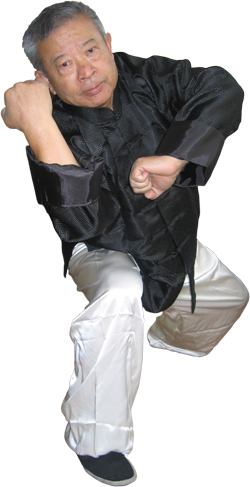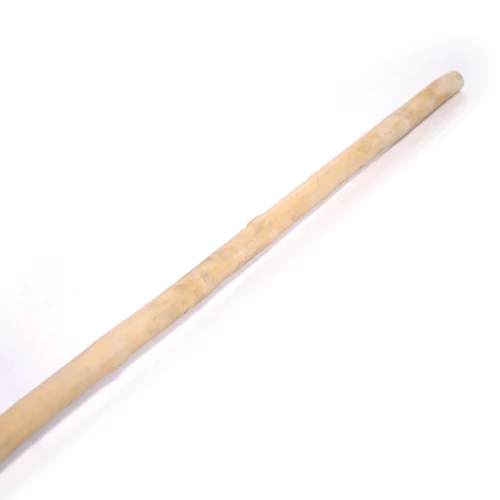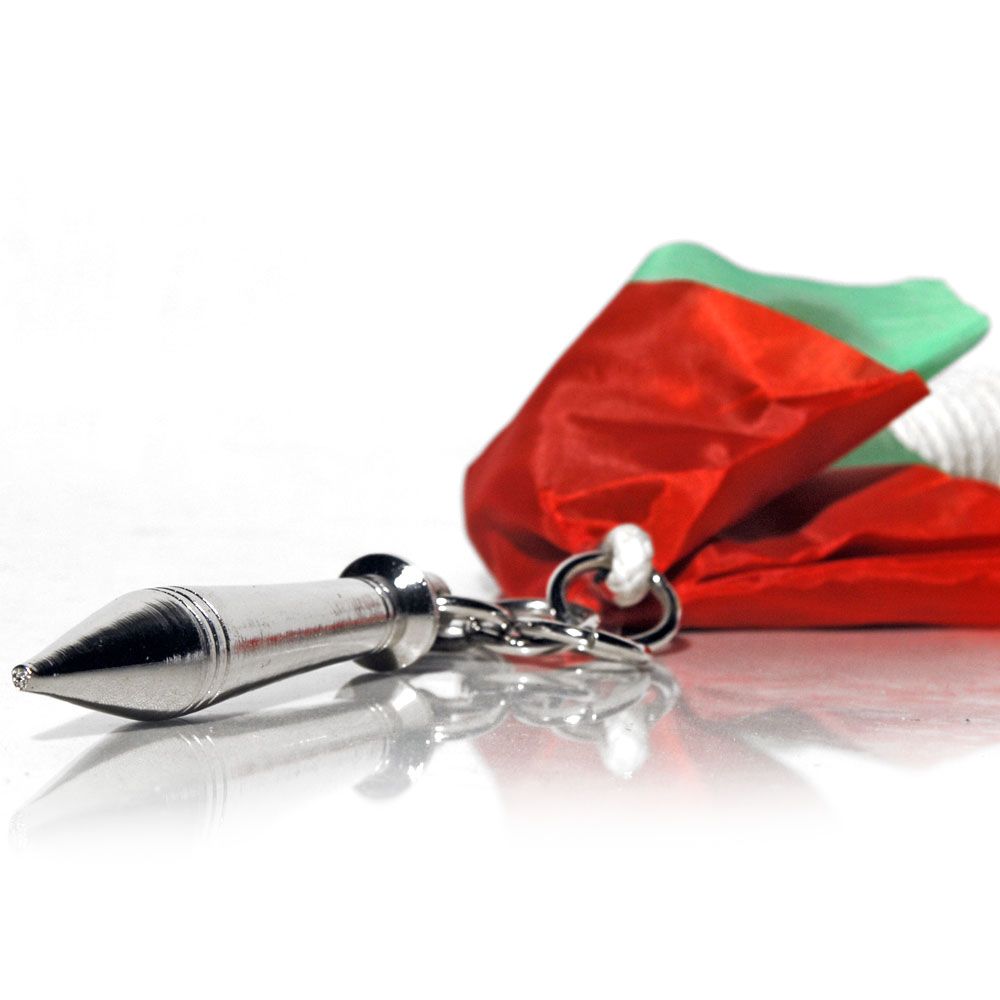By Melody Chung
 Hailed the "father of modern wushu," Coach Wu Bin is synonymous with greatness. For decades, the ninth-degree grandmaster has directed wushu's backstage development by spotting potential, building world champions, and advancing wushu to the international arena. He is the architect of modern wushu, an architect still shaping wushu's future after forty years.
Hailed the "father of modern wushu," Coach Wu Bin is synonymous with greatness. For decades, the ninth-degree grandmaster has directed wushu's backstage development by spotting potential, building world champions, and advancing wushu to the international arena. He is the architect of modern wushu, an architect still shaping wushu's future after forty years.
To most he is known as the founder of the renowned Beijing Wushu Team and the coach who produced Hollywood star Jet Li. But his contributions to the martial arts go well beyond that - and Jet Li is not the only athlete he has placed in the spotlight: he encouraged athletes Zhao Qingjian and Liu Qinghua to join the team, and also trained masters residing in the U.S. such as Patti Li (Hao Zhihua), Li Jinheng, Li Jing, Zhang Guifeng, Huang Qiuyan, and Zhang Hongmei.
Coach Wu has held top positions in the Chinese Wushu Association, Beijing Wushu Institute, Asian Wushu Federation, and International Federation of Wushu. On top of that, he has written 18 books. In an interview, Coach Wu explained the details of his past and discussed his thoughts on the direction of modern wushu.
Wu Bin's past Wu Bin was born in Wuxing County of Zhejiang Province in 1937. Surprisingly, Coach Wu did not become involved with wushu until the late age of 19. "Even before wushu, I was already quite athletic," he says. "I trained professionally in weightlifting, and in my free time, I swam, played soccer, and practiced basketball." In 1958, he tested into the Beijing Physical Culture University, where he practiced three essential movements in weightlifting. After a year, he injured his waist and was unable to continue training seriously, so his career in weightlifting came to an end.
In 1959, Zhang Guangde, a wushu instructor at the school, recommended that the young Wu Bin switch his major to wushu because he would have a brighter future. Under Zhang Guangde, Wu Bin learned beginner fist forms, stances, and flexibility. He also worked on za quan in private lessons with renowned grandmaster Zhang Wenguang, the head of the wushu department and a performer at the 1936 Berlin Olympics. Although there were only two other students in the class, Wu Bin worked furiously to catch up. "The flexibility aspect of wushu came fairly easy to me because my flexibility was already satisfactory," he says. "Kicks and splits were not a problem."
When Coach Wu talks about his late start in wushu, he describes himself as "man niao kuai fei," or a bird with a late start that flew quickly in order to catch up. Every morning, he determinedly practiced wushu, and when everyone went home during vacations, he stayed at the school to practice some more. With inadequate nourishment at the time, the school even permitted students to skip morning classes, but he trained anyway to catch up to his peers. Wu Bin also later learned under coaches Zao Baolong, Zheng Xueming, and Zhuo Jingshen. From these instructors, he picked up valuable teaching methods that he would later use on future students at Shi Cha Hai.
In 1963, Wu Bin graduated from the Beijing Physical Culture University with a major in wushu. In 1964-5, instructor Zhang Wenguang brought Wu Bin to several national wushu meetings. Teachers from across the country gathered to discuss regulations for competitive routines and figured out how to implement wushu programs in elementary schools. Later on, his classmate Men Huifeng also took him to reunions of traditional masters. Through these meetings, Wu Bin picked up information from dozens of grandmasters. If he didn't understand something, he would ask questions. He would snip out magazine and newspaper articles related to wushu or kung fu to create a collection; these articles helped him understand the theory and application behind martial arts, and would aid him in establishing his own system of teaching.
In 1964, Wu Bin was sent by the government to teach a small wushu class at the Beijing Sports School. The environment was incredibly poor, with limited space. Wu Bin disregarded these Spartan living conditions, saying that "it didn't matter," because his main goals were to train wushu athletes and to establish a renowned school. Others criticized his goal as being unrealistic, but Wu Bin was determined to pursue his dreams. In 1966 he was awarded "Outstanding Coach" by the government.
From 1966 to 1969, the Cultural Revolution took its toll on wushu. Because it was considered part of the "Four Olds," masters were prohibited from teaching and practicing martial arts. Wu Bin trained his students underground anyway. In 1970, the Beijing Physical Culture University gained permission from Jiang Qing, one of the members of the Gang of Four, to reopen wushu classes. With a green light from the government, Coach Wu began to seek out talented elementary students for a new wushu class. In 1971, 8-year-old Li Lianjie (Jet Li) started training under Wu Bin. The first few years were considered amateur training because the students would go to school in the mornings and practice in the afternoons.
In 1972, the students were invited to perform at the opening ceremony of an international ping-pong competition held in Beijing. The performance was a blast, and from then on, the Beijing Sports School rose in prestige. A film company later produced a documentary featuring the students practicing wushu; this documentary was a diplomatic gesture to allow outside countries like Hong Kong, the Philippines and Japan to witness Chinese culture.
In November 1974, the Beijing Wushu Team was officially established. In a decade-long reign, athletes under Wu Bin swept national championships. In 1986, the government sent Wu Bin to the Chinese Wushu Research Institute. Without Wu Bin, the school's success plummeted; arguments broke out, students grew undisciplined, and the team lost its strong standings. In 1993, Wu Bin was sent back to Beijing to reform the team. Once again, he mounted a talent search to find athletes with potential.
One of these athletes was Liu Qinghua of Liaoning Province. Although she was already 22 years old, Wu Bin approved of her standardized and clean movements. In 1995 she tore an ankle ligament and had an infected kidney. Other coaches doubted her ability to succeed, but Wu Bin simply found the best doctor to cure her kidney problems. When she competed in 1996, she made mistakes and did not place. Even under pressure to regain Beijing's lost reputation, Wu Bin did not yell or lecture her, only saying, "It's okay, try again next time." Later on, she secured her spot in wushu history by winning two gold medals in changquan and weapon forms.
Wu Bin was an extremely strict coach who grabbed every opportunity to train his students. He would take his students out to the basketball courts to stretch, and when it rained, they would train under the bleachers. He never allowed his students to get away with anything under par, and he would make them repeat movements over and over again until they executed them correctly.
To Wu Bin, a coach must invest as much energy and time as the students. If training were scheduled at 5:30 a.m., then he would show up ten minutes earlier. "The students would say, ?Hurry up! Coach is already out there,'" he says. "They would sprint out frantically, but eventually they learned to come out earlier. I wanted to show them that I was serious about training them," he says.
Wushu in America Wu Bin believes that certain obstacles are currently limiting the growth of wushu in America. Whereas Chinese athletes are often pushed to the limit, American students generally cannot be pushed too hard. "Students are comfortable in America because there is a higher standard of living. So for instance, I can't stretch them too hard or else they won't come back and learn anymore," he says.
Considered a hobby rather than a profession in America, wushu is easy for children to study when they are happy and stop when they are not. To Wu Bin, practicing without consistency and a long-term plan is merely called "playing" and not "training." Furthermore, wushu is a difficult sport for children to learn. Unlike karate, which encompasses simple movements in only one direction, wushu focuses on all four directions. On top of that, with so many different categories and traditional methods, there are no standard competition rules in America, so Wu Bin feels that it is easy for kids to give up.
Despite the obstacles, however, there is still hope that wushu can spread in America. Wu Bin believes that there are two ways to accomplish this. First of all, students must be passionate about what they are learning and develop a dedication to the sport. "Watching martial arts movies is one way to inspire kids to train," he says. Secondly, students must develop solid basics, but even this is challenging to achieve. It is difficult for coaches to train students in terms of coordination, legwork, posture, and jingqisheng. On top of that, coaches often have to worry about running their schools and paying rent.
Wu Bin gives an example about how hard it is to teach in America. "Suppose a coach is running a school in the U.S., but only two people show up to class. The coach still has the obligation of teaching them. If the students are youngsters, then the coach has to keep them happy, and so training sometimes becomes playing or even babysitting. It's not training anymore," he says.
Wu Bin states that he is always surprised when watching American kids compete or perform, because they seem to know everything: three-section staff, double broadswords, international routines, and more. Yet in the end, they seem to have "mastered nothing at all," because none of their movements have been executed completely. "They are not dao wei, or standardized and executed properly! The movements are done halfway," he says. That's why coaches and students must focus on developing strong basics and outline a long-term plan.
Wu Bin believes that the best age to begin wushu is eight years old. He believes that even starting at six or seven years old is too early, unless students are only practicing flexibility, because the kids are often more interested in playing than training. He realizes that gymnasts often begin learning at four years old, but he states that wushu is different because the students need a level of maturity to take training seriously.
In the end, Wu Bin still believes that wushu's path to becoming a global sport begins in America. Since the U.S. is strong in athletics, wushu must first become popular in America. "Why did tae kwon do spread so fast? Why is it in the Olympics? It's because of America," he states. "The karate and tae kwon do community were able to make these sports easy to learn, teach, and understand. Students nationwide also have a passion for it. Wushu must learn from these sports."
Wushu in China and Nandu With the 1990s came nandu, or difficulty movements. Wushu's bid for the 2008 Olympics only made nandu more pronounced, as athletes raced to beat each other. With rotations and height increasing exponentially, Wu Bin wants us to ask, "Is this wushu? Is this martial arts? What is authentic?" Wu Bin admits that with nandu so widespread in China, it is difficult to reverse the process and go back to basics. He is not against nandu, though he states that this cannot define wushu or become the only aspect of it.
In China right now, nandu often determines who receives the highest score. But Wu Bin believes that this is wrong because it diminishes the value of shouyanshenfa. Wu Bin states that Chinese judges need to come together to modify the current system so that nandu is less emphasized. "Today shouyanshenfa is not considered nandu. This is wrong," he says. "If your jingqisheng is not good enough, then this is not wushu," he states. "Beauty lies in a person's jingqisheng."
In the days of "old school" wushu, it was difficult to measure shouyanshengfa, but judges could tell by instinct. He admits that jingqisheng is a subjective characteristic that cannot be measured explicitly: "It's a feeling you get. You can't explain why you feel impressed by a person's jingqisheng, but you can certainly feel it. For instance, back in the ?70s Grandmaster Chen Dao Yun had very good jingqisheng. That's why no one could beat her."
Coach Wu feels that wushu needs to go back to basics and be simplified for the rest of the world to follow. Nandu also makes it easy for athletes outside of China to get injured; forcing a movement can easily lead to injuries, since the athlete's condition and body are not up to par yet. "In China, the professionals train at least four hours a day. Their bodies are prepared for movements and nandu. In America, the athletes don't train as much, carpets are not standardized, and protection and equipment are not enough. This is unfair to the U.S. athletes. As of now, America cannot compare with China."
In addition to placing less emphasis on nandu, Wu Bin wants the wushu community to devise a method to make wushu more popular. Sports like ice-skating are artistic and aesthetically pleasing and can attract thousands of spectators and non-athletes. On the other hand, wushu competitions-even national ones in China-often draw small audiences. Wu Bin challenges the wushu community to ponder, "How can we make wushu more attractive, so that spectators can enjoy, appreciate, and understand the sport?" He believes that Chinese judges, coaches, and athletes need to come together to solve this question and develop standard rules for the rest of the world to follow.
Although wushu lost its 2008 Beijing Olympic bid, Wu Bin mentions the positive sides. For one, there will still be a wushu competition going on at the same time with the same facilities. Secondly, medals will have the Olympic engraving on the front and a wushu movement on the back. These aren't the best results after years of high expectations, but Wu Bin feels that some progress is better than no progress.
Young Champions After Wu Bin retired in 2003, he became involved with a U.S. program called Young Champions. Founded by Bonnie Hood around 40 years ago, the program originally consisted of a baton-twirling group of girls from the Grand Rapids area. The program was designed to promote self-esteem, coordination, and physical fitness in children from ages 4 to 15. Today, the nation-wide program encompasses other sports such as cheerleading, self-defense, and wushu.
Three years ago, Coach Wu was invited to host wushu summer camps. Accompanied by three world champion students, he traveled to eight different states and taught over 1,000 American students. Since that time he has traveled to California, Arizona, Colorado, Kansas, Michigan, Ohio, Illinois, and Minnesota. Besides teaching, he has been active in establishing a wushu curriculum for beginners, arranging a cheerleading cultural exchange program to China in 2004, and sending U.S. students to train and sightsee in Beijing. So far, the wushu program has gained substantial improvement and prestige; the Young Champions demo team won the championship at the 30th Battle of Columbus Martial Arts World Games in March 2006. The program - achieving its goal of making wushu more popular - has expanded into Wisconsin, Tennessee, Missouri, and North Carolina.
Wu Bin likes Young Champions because it is a vehicle for expanding wushu to Caucasians in America. "The good thing about Young Champions is that it's like a chain store, so wushu can spread extremely fast," he says.
Wu Bin and Young Champions have also been planning a competition open to all athletes. Although still in its tentative stages, it will be held at the Mega Expo Center in Chicago from November 15-17, 2007. Divisions will include modern wushu judged by Olympic rules, modern wushu judged by International Wushu Federation rules, traditional wushu, and group sets. More information will be released as the date approaches. If you think Wu Bin is winding down, you're wrong. The wheels in his head are always turning, and he's always looking toward the next step. He's only just beginning.
Click here for Feature Articles from this issue and others published in
2007 .
About
Melody Chung :
Melody Chung has won numerous national writing awards, including a Gold Award from the 2004 Scholastic Art and Writing Awards and a national winner citation from the 2003 NCTE Promising Young Writers Program. She is also a co-author of the book Joy of Wushu.
![]() Print Friendly Version of This Article
Print Friendly Version of This Article















